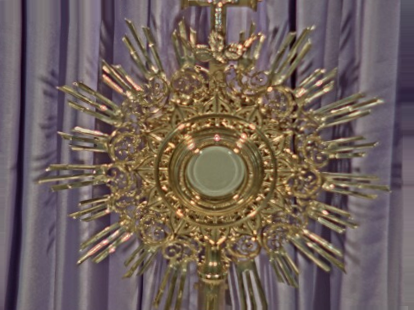Saints
Blessed Elizabeth Canori Mora
1774-1825
Elizabeth Canori Mora was born in Rome on 21 November 1774 to Tommaso and Teresa Primoli. Her family was well-off, profoundly Christian and diligent in the education of their children.
Elizabeth studied with the Augustinian Sisters of Cascia (1785-88), where she was noted for her intelligence, profound interior life and spirit of penance. Returning to Rome, she led a remarkable life for some years and in 1796 married Cristoforo Mora, a young lawyer.
Matrimony for her was a thoughtful, mature decision, but after some months, the psychological fragility of Cristoforo compromised the serenity of the family. Attracted by a woman of simple status, he deceived his wife and estranged himself from the family, reducing it to destitution.
To the physical and psychological violence of her husband, Elizabeth responded with absolute fidelity. There are no excuses, conveniences or interests that can justify any detraction whatsoever to the code of fidelity which is of love and of total surrender.
In 1801 a mysterious illness brought her to death’s door. She was cured in an inexplicable way and had her first mystical experience.
She was the mother of four children, of whom the first two died a few days after birth. Forced to make a living working with her hands, she continued to care for her daughters, Marianna and Luciana, and the daily chores of the home with utmost care. She also dedicated much time to prayer, the poor and the sick.
Her home soon became a reference point for many people who turned to her for material and spiritual help. She devoted special care to families in need. For her, family meant a place for each person, a place of fruitfulness and life, of faith, solidarity and responsibility. It was the temple in which she welcomed the “beloved Lord, Jesus of Nazareth” and all those who turned to her. Through self-denial, Elizabeth offered her life for the peace and holiness of the Church, her husband’s conversion and the salvation of sinners.
In 1807 Elizabeth joined the Trinitarian Third Order. She came to know and understand profoundly the spirituality of the Trinitarians, responding with dedication to the vocation of the family and secular consecration. Her admirable human and Christian virtues and the fame of her holiness spread through Rome, Albano and Marino, where she was popularly known as “the saint”.
On 5 February 1825, while being cared for by her two daughters, Elizabeth died, entering gently into the light of the Holy Trinity. She is buried in Rome in the Trinitarian church of San Carlino alle Quattro Fontane. Shortly after her death, as she had predicted, her husband converted, joined the Trinitarian Third Order and later became a priest of the Conventual Franciscans. He died on 9 September 1845 and is buried in the Conventual Franciscans’ church in Sezze.

- Blessed Isidore Bakanja
- Blessed Marguerite Bays
- Blessed Teresa Bracco
- Blessed Marcel Callo
- St. Margaret Clitherow
- Blessed Luigi Beltrame Quattrocchi & Blessed Maria Corsini
- St. Fabiola
- Blessed Antonia Mesina
- Blessed Pier Giorgio Frassati
- Blessed Nikolaus Gross
- St. Helena
- St. Isidore the Farmer
- Blessed Bartholomew Longo
- St. Charles Lwanga and Companions
- St. Anne Lyne
- Blessed Ceferino Gimenez Malla
- Blessed Gianna Beretta Molla
- Blessed Elizabeth Canori Mora
- St. Manuel Moralez
- St. Thomas More
- St. Joseph Moscati
- St. Nonna
- St. Salvador Lara Puente
- St. David Roldán-Lara
- Blessed Carlos Manuel Cecilio Rodriguez Santiago
- Venerable Matthew Talbot
- Blessed Laura Vicuna
- Blessed Artemide Zatti